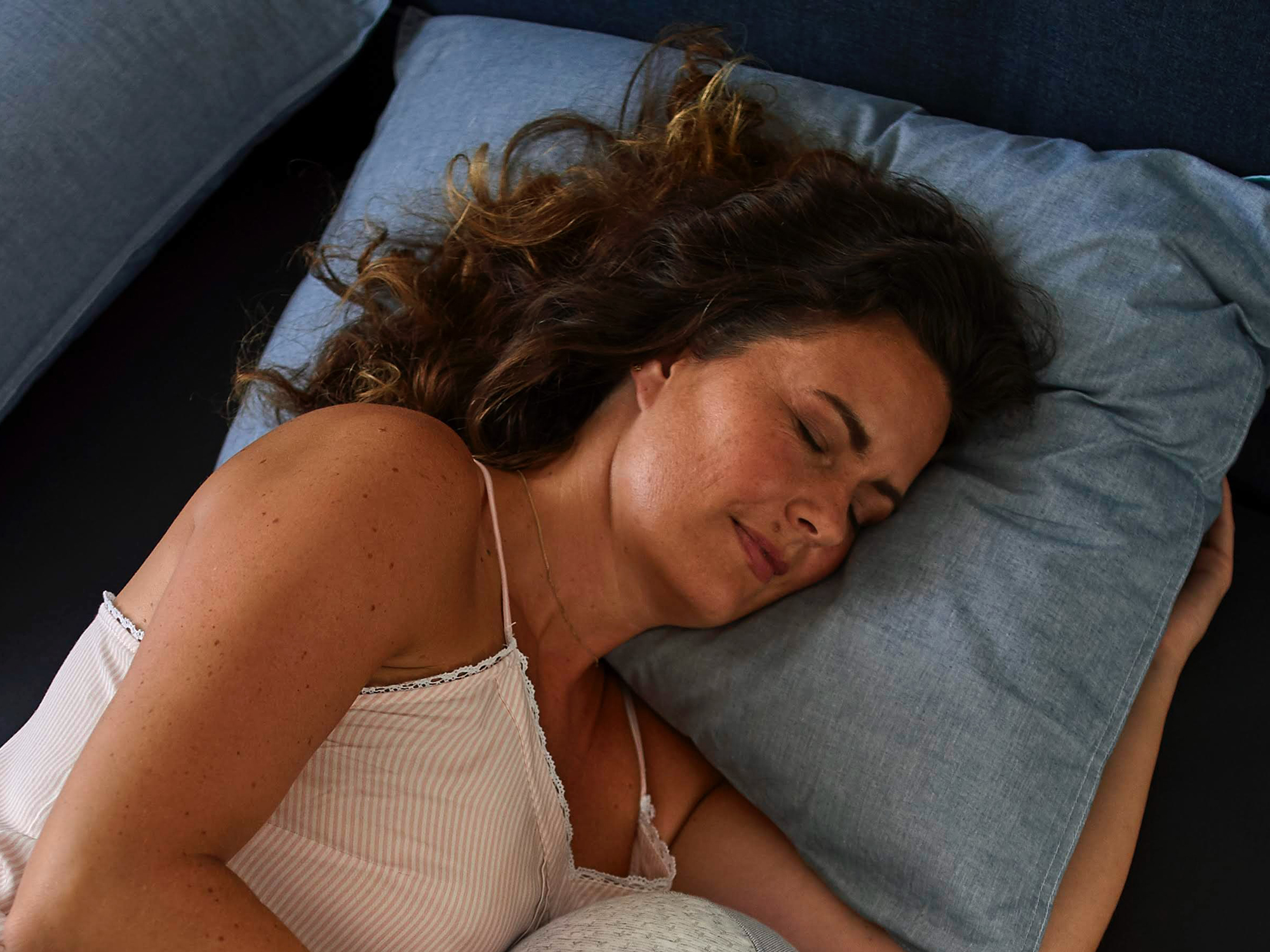

Good sleep means good health, and you can ensure you get the right quality and amount of shut-eye by using one of the many gadgets designed for the task—from the Apple Watch to the Fitbit Sense.
But not everyone wants to wear a watch or a fitness band to bed, so if you’re looking for a wearable-free option, you’ve already got one. With the right app, your phone can keep tabs on your slumber too.
With your mobile laid somewhere on your mattress, these apps interpret data about the movements and noises you make while you’re sleeping to assess the quality of your slumber, so you can make changes if you find you’re not getting enough.
Sleep as Android

Few sleep-tracking apps are as comprehensive as Sleep as Android. In addition to actually tracking your slumber, it can help you doze off with the sounds of nature, identify the optimum point in your body’s circadian rhythms to wake you up gently, record your snoring and sleep talking, and connect to a host of third-party apps and devices (from Google Fit to the Samsung Galaxy Watch).
At the center is sleep tracking. To assess how restful your sleep is, your phone uses its built-in accelerometer, then runs algorithms and statistical analysis to split your slumber up into deep and light periods. Every morning, you’ll be able to see how many hours of sleep you got, plus how well you slept, in the form of a score.
There’s a huge amount to explore in this app, including alarms that won’t shut up until you answer a math equation. Some features, including support for third-party wearables, require a $10 premium upgrade that also removes ads from the app.
Sleep as Android is free for Android.
Pillow

One of the more polished sleep-tracking apps we’ve come across, Pillow can work with an Apple Watch or just an iPhone placed on the bed. It analyzes your movements through the night to record how long you’ve been sleeping for and splits your sleep into three categories: light, deep, and REM.
If you want to study issues like snoring or apnea, the app will also record the noises you make while you sleep and has a smart alarm feature that uses your movements to find the best time (within a preset window) to wake you up in the morning. There’s even a nap mode for those shorter bursts of sleep.
You can use Pillow for free, but unlocking the premium version ($5 a month) gives you access to numerous extra features, including monthly and yearly charts of your sleep statistics, custom-made melodies to send you to sleep or wake you up, and the ability to export your data.
Pillow for free iOS.
Sleep Cycle

Keep your mobile device on your bed overnight, and this platform will give you access to a wealth of information about your sleeping habits. The next morning, you can see your periods of wakefulness, and light and deep sleep, which you can measure over time.
A big part of the app is the smart alarm clock. Within a certain period of time you set—so you won’t miss work or your morning workout session—this feature will wake you up when your body is in a lighter period of sleep. There’s even a smart snooze function that can delay your wake-up time based on periods of light and deep sleep, rather than a set time period.
You can use all of the core features of Sleep Cycle for free, but if you choose to pay $2 a month, you can take advantage of the data export option, plus the ability to link other information to your sleep patterns, like coffee consumption and exercise.
Sleep Cycle is free for Android and iOS.
SleepScore

SleepScore can work from your bedside table as well as your mattress, using readings from your phone’s microphone and speaker to judge how well you’re sleeping. The tracking is detailed, too, covering how long it takes you to doze off, and the time you spent in light, deep, and REM sleep.
The app is one of the most comprehensive in terms of analyzing your sleep patterns and making suggestions about how to improve your slumber. It will also ask you to set goals for yourself, like whether you want to fall asleep more quickly or have more energy in the mornings.
If you pay $8 a month for a premium subscription, you’ll get more in-depth reports on your sleep, and personalized suggestions from the experts at SleepScore. Paying up also gives you access to your full sleep history, rather than just the last week.
SleepScore is free for Android and iOS.
Sleep Theory

This is another app that tries its best to give you a bit of insight into how you’re sleeping, while also logging the basics of how much shut-eye you’ve had. It’s particularly good on charts, serving up a slew of diagrams covering your habits over time.
If you want to change those habits, the app can make suggestions based on the generally accepted idea of the 90-minute deep sleep cycle, getting your body in better shape for waking up at a more optimum time. The app also includes features such as smart alarms and bedtime reminders.
While there’s a lot you can explore in Sleep Theory and Sleep Tracker for free, paying an extra $2.50 each month gives you access to a selection of premium features, including music designed to help you fall asleep faster and a number of bedtime exercises you can do as you seek a quicker fall into Morpheus’ soothing embrace.
Sleep Theory is free for Android and iOS.
